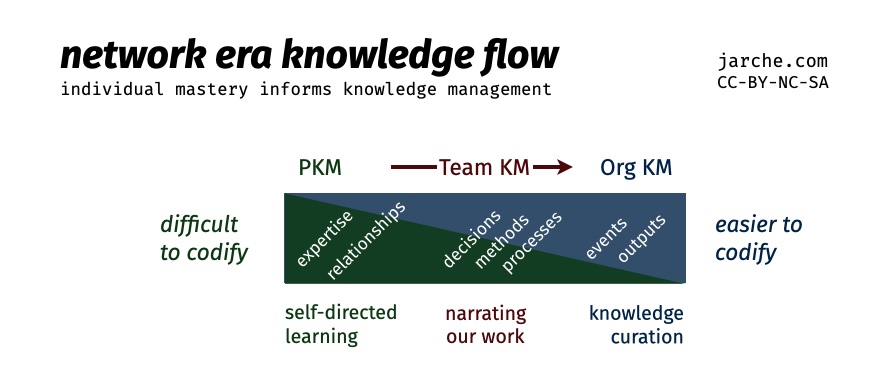I just presented at the first annual European PKM Summit, with a formal presentation yesterday and a casual chat today. Next year’s summit is scheduled for 14/15 March 2025. Some of what I covered is posted at 20 years of PKM. I mentioned several projects and resources which are available on this site.
What Domino’s Pizza learned about implementing PKM practices — Solo change agents set you free
Changing the corporate university at Cigna 2010/2011 — working smarter case study
Reforming the government of Finland’s operating practices particularly moving toward a more collaborative culture — toward distributed governance
How can an organization like Cooperative Extension at UNL adapt to the network era? — networked knowing
How do you improve collaboration, knowledge-sharing, and sensemaking in a globally distributed company [Citi] with over 200,000 employees? — working smarter 2020
The continuous changing nature of professional development to keep up with new demands for knowledge workers — PKM Workshop
There were many questions on how PKM connects with organizational knowledge sharing. I explained that team collaboration requires the transparent sharing of knowledge — using enterprise social networks and other technologies — so that everyone on a team knows what is going on and why. Decisions, and why they were made, are shared. New processes and methods are co-developed to create emergent practices. This method of work has to be supported by management by enabling — innovative and contextual methods, the self-selection of the most appropriate tools and work conditions, and willing cooperation between workers. More at — adding value with teams.
We also discussed communities of practice and I mentioned how our coffee club, consisting of about 50 people from several continents, was focused on workplace learning and was a safe place to test out new ideas and make new connections, one of which resulted in a new business — Asynco.

